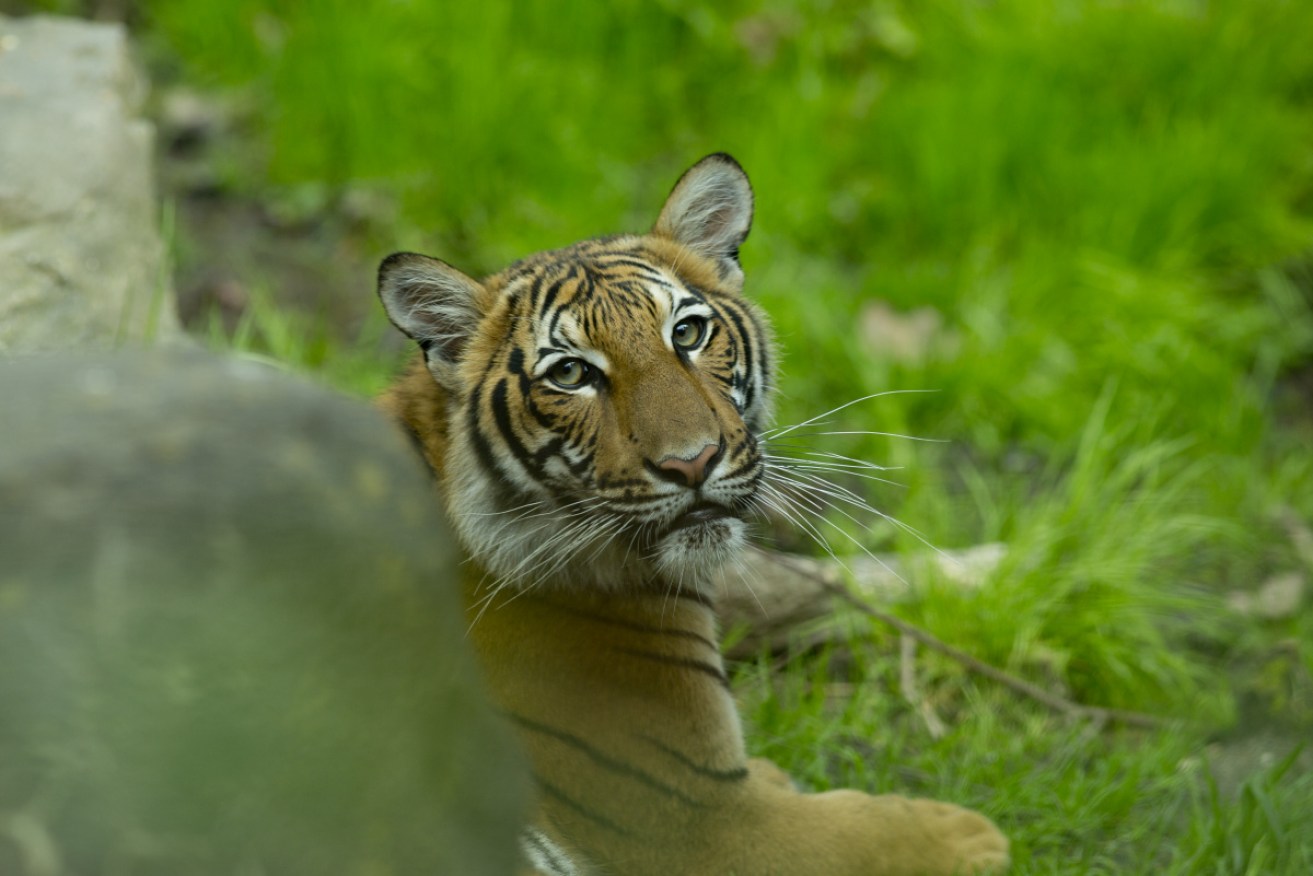Tiger at New York zoo confirmed with coronavirus


A young Malayan tiger at the Bronx zoo in 2017. One of the zoo's tigers has the coronavirus. Photo: Getty
A tiger at New York’s Bronx Zoo has tested positive for the coronavirus, in what is believed to be the first known infection in an animal in the US or a tiger anywhere.
The four-year-old female Malayan tiger, and six other tigers and lions that have also fallen ill, are believed to have been infected by a zoo employee, the US Department of Agriculture said.
The first animal started showing symptoms March 27. All are expected to recover, said the zoo, which has been closed to the public since March 16.
“We tested the cat out of an abundance of caution” and aim to “contribute to the world’s continuing understanding of this novel coronavirus,” zoo chief veterinarian Dr Paul Calle said.
Officials said no other animals in the zoo had coronavirus symptoms.
The finding raises new questions about transmission of the deadly coronavirus in animals. The USDA said there were no known cases of the virus in US pets or livestock.
“It’s important to assure pet owners and animal owners that at this time there isn’t any evidence that they can spread the virus,” said Dr Jane Rooney, a veterinarian and a USDA official.
The coronavirus outbreaks around the world are driven by person-to-person transmission, experts say.
In a statement, the USDA said “there is no evidence that animals play a role in the transmission of COVID-19 to people”, except for the initial outbreak in Wuhan, China.
There have been reports of a handful of pets outside the US becoming infected after close contact with contagious people. Among them is a Hong Kong dog that tested positive for a low level of the pathogen in February and early March.
In March, Adjunct Professor Graham Burgess from the College of Public Health, Medical and Veterinary Sciences at JCU told the ABC any mammal was a potential carrier of the coronavirus.
Professor Burgess said all common domesticated animals, including bovines and dogs, had adapted coronaviruses in the past 2000 years.
Coronaviruses in dogs and cats were found to be made up of combined genetic material from other coronaviruses, he said.
Some researchers have been trying to understand the susceptibility of different animal species to COVID-19, and to determine how it spreads among animals, according to the Paris-based World Organisation for Animal Health.
-with AAP








